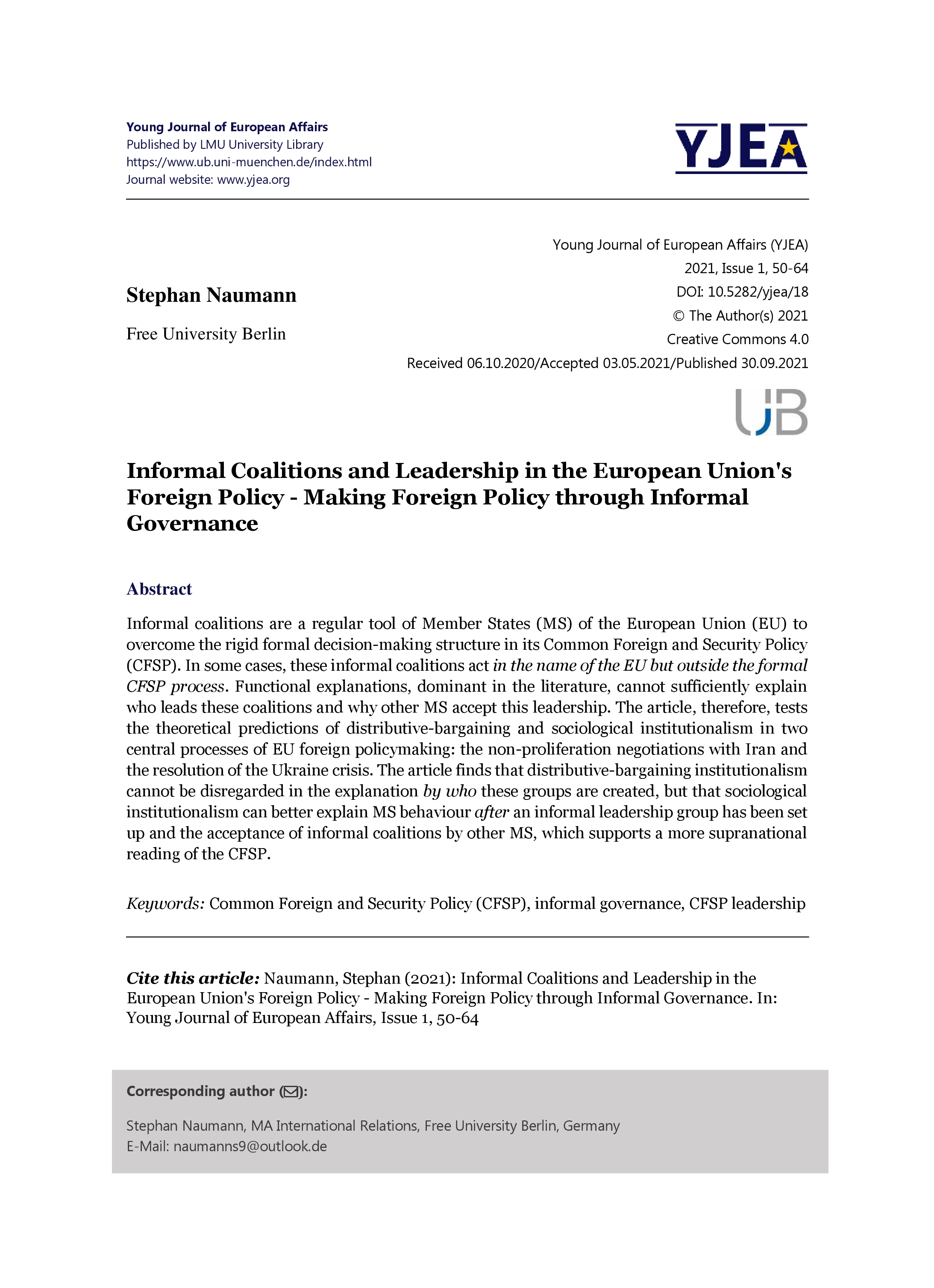Informal Coalitions and Leadership in the European Union’s Foreign Policy
Making Foreign Policy Effective through Informal Governance
DOI:
https://doi.org/10.5282/yjea/18Keywords:
Common Foreign and Security Policy, Informal Governance, CFSP leadershipAbstract
The European Union’s Common Foreign and Security Policy (CFSP) is often unable to act due to heterogeneous preferences and intergovernmental decision-making. Informal coalitions of Member States (MS) seek to circumvent this and organize CFSP in the name of the EU, but outside the formal CFSP process. How can this work? The article sets out the theoretical predictions of distributive-bargaining and sociological institutionalism and then weights these against four policy case studies: Iran, Ukraine, Somalia and the DRC. The article finds that distributive-bargaining institutionalism can explain why and by who these groups are created, but sociological institutionalism can better explain the member state behavior after an informal leadership group has been set up.

Downloads
Published
Issue
Section
Categories
License
Copyright (c) 2021 Stephan Naumann

This work is licensed under a Creative Commons Attribution 4.0 International License.


